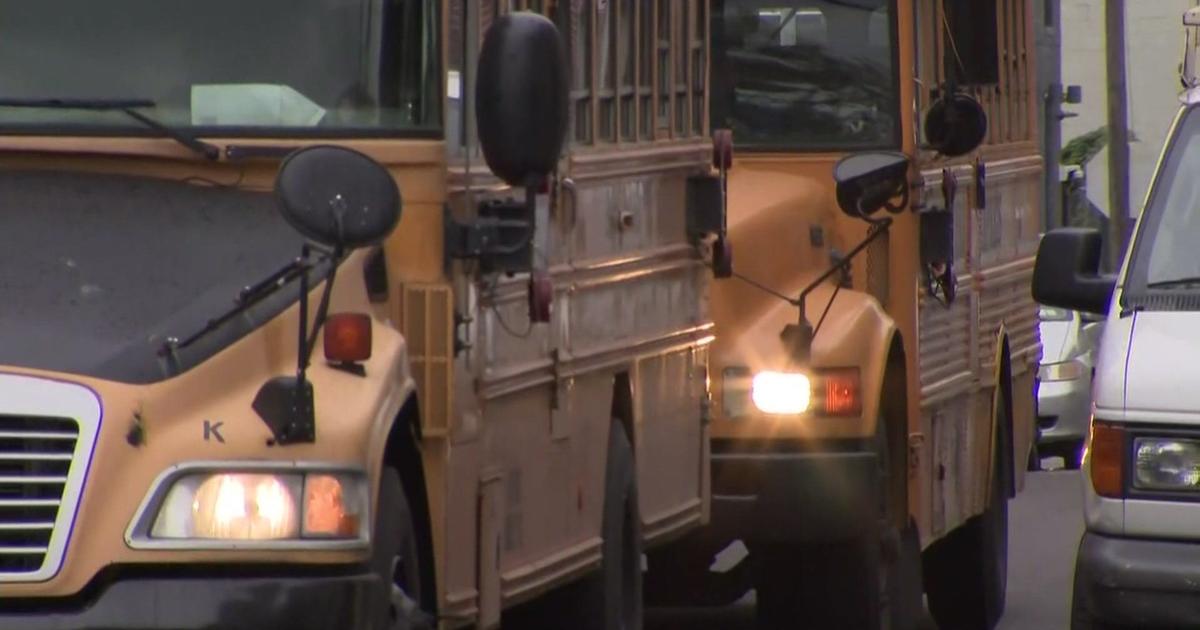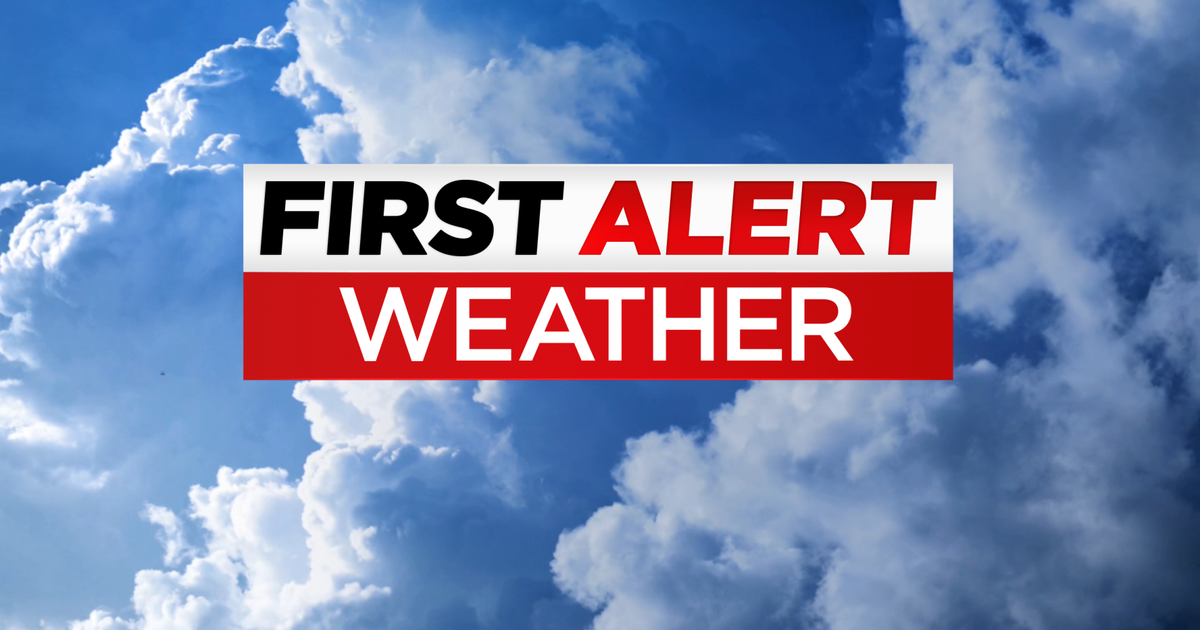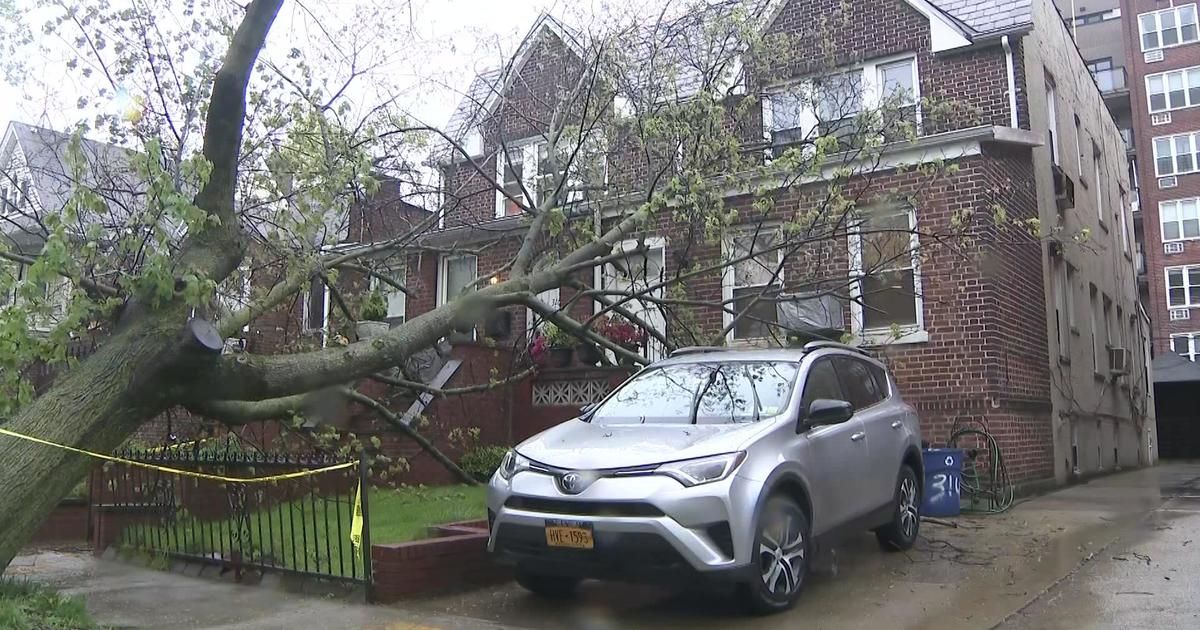Tri-State Faces Second Day Of Bitter Cold, But Temperatures Warming
NEW YORK (CBSNewYork/AP) -- The Tri-State area suffered through another frigid cold day Wednesday, but temperatures were warmer than the record-breaking lows that left the region in a deep freeze a day before.
As of Tuesday afternoon, the temperature had climbed to 21 degrees from another early morning in the single digits.
The big chill was caused by a kink in the "polar vortex,'' the strong winds that circulate around the North Pole. The icy air covered about half the country by Tuesday, but it was moving north, returning more normal and warmer weather to most of the country.
And as CBS 2's Alice Gainer reported, the bitter blast caused numerous problems -- including icy conditions on the area's busiest waterways. On the Hudson River, ferries and other vessels had to negotiate around the ice all day Wednesday.
Near Croton-on-Hudson, one New York Waterway ferry needed help from a tugboat to make it through the frozen river. Huge sheets of ice could also be seen all around the George Washington Bridge.
Indeed, the Hudson was covered in ice for miles, and Coast Guard cutters had to be brought in to ensure the river remained navigable.
And all along the West Side Highway, drivers caught glimpses of massive pieces of ice.
"Every part of the ice is different the shape; I took maybe 100 pics," said Sel Buyuksarac of Jacksonville, Fla.
Dramatic scenes were also spotted in several other locations. Ocean water crashed into Valentino Pier in Red Hook, Brooklyn and froze, leaving icicles dangling off the side of the pier.
And in New Jersey, the historic Paterson Great Falls powered through the ice, with some water still cascading down into the Passaic River – where steam could be seen rising.
In Trenton, N.J., the Delaware River looked completely frozen over. Ice jams restricted the flow of water, triggering the National Weather Service to issue a flood watch downstream for when the jams break up.
Anyone who relied on the ferry for transportation Wednesday night was advised that some routes have been experiencing issues. New York Waterway warned of limited seating on some lines.
Commuters were advised to check with their service before leaving.
Conditions were far more severe on Tuesday, when the mercury plunged into the single digits and teens -- or even the deep subzero range -- across the nation. It was 2 in Trenton while New York City plummeted to 4 degrees; the old record for the date was 6, set in 1896.
"It's brutal out here,'' said Spunkiy Jon while taking a break from her sanitation job. "Your fingers freeze off after three minutes, your cheeks feel as if you're going to get windburn, and you work as quick as you can.''
Throughout the Tri-State area, emergency room doctors and nurses have been working overtime to handle an influx of patients suffering from frostbite and hypothermia.
"We're seeing a lot of people with breathing problems, asthmatics, people who have respiratory issues," said St. Luke's Hospital Emergency Room Medical Director Jeffrey Rabrich. "The cold air hits their lungs and triggers and asthma attack."
The bitter cold caused delays along the Northeast Corridor on Tuesday because Amtrak had overhead wire problems near Trenton.
Then 1,000 NJ TRANSIT passengers were stuck inside a train for nearly two hours after a power line fell on top of it near Newark Penn Station.
A video clip showed the train hitting some power lines after leaving Newark Penn Station on its way to New Brunswick. Amtrak confirmed the power lines had been loosened by the frigid temperatures.
"Tore the wires down," a passenger said. "This is almost a daily occurrence on NJ TRANSIT."
"These wires were live and as a result, the train could not safely move and customers were unable to exit the train," NJ TRANSIT spokesman John Durso Jr. said. "As a result, Amtrak crews were brought in to help us address the situation."
Metro-North trains were also delayed because of the frigid temperatures.
Metro-North Faces Slowdown In Frigid Temperatures
With the extreme cold slowing baggage handling and aircraft refueling, airlines canceled more than 2,000 flights in the U.S., bringing the four-day total to more than 11,000.
This weekend, it was expected to be in the 50s in New York and even higher in places farther south along the Eastern Seaboard.
Check Out These Other Stories From CBSNewYork.com:
(TM and © Copyright 2014 CBS Radio Inc. and its relevant subsidiaries. CBS RADIO and EYE Logo TM and Copyright 2014 CBS Broadcasting Inc. Used under license. All Rights Reserved. This material may not be published, broadcast, rewritten, or redistributed. The Associated Press contributed to this report.)



